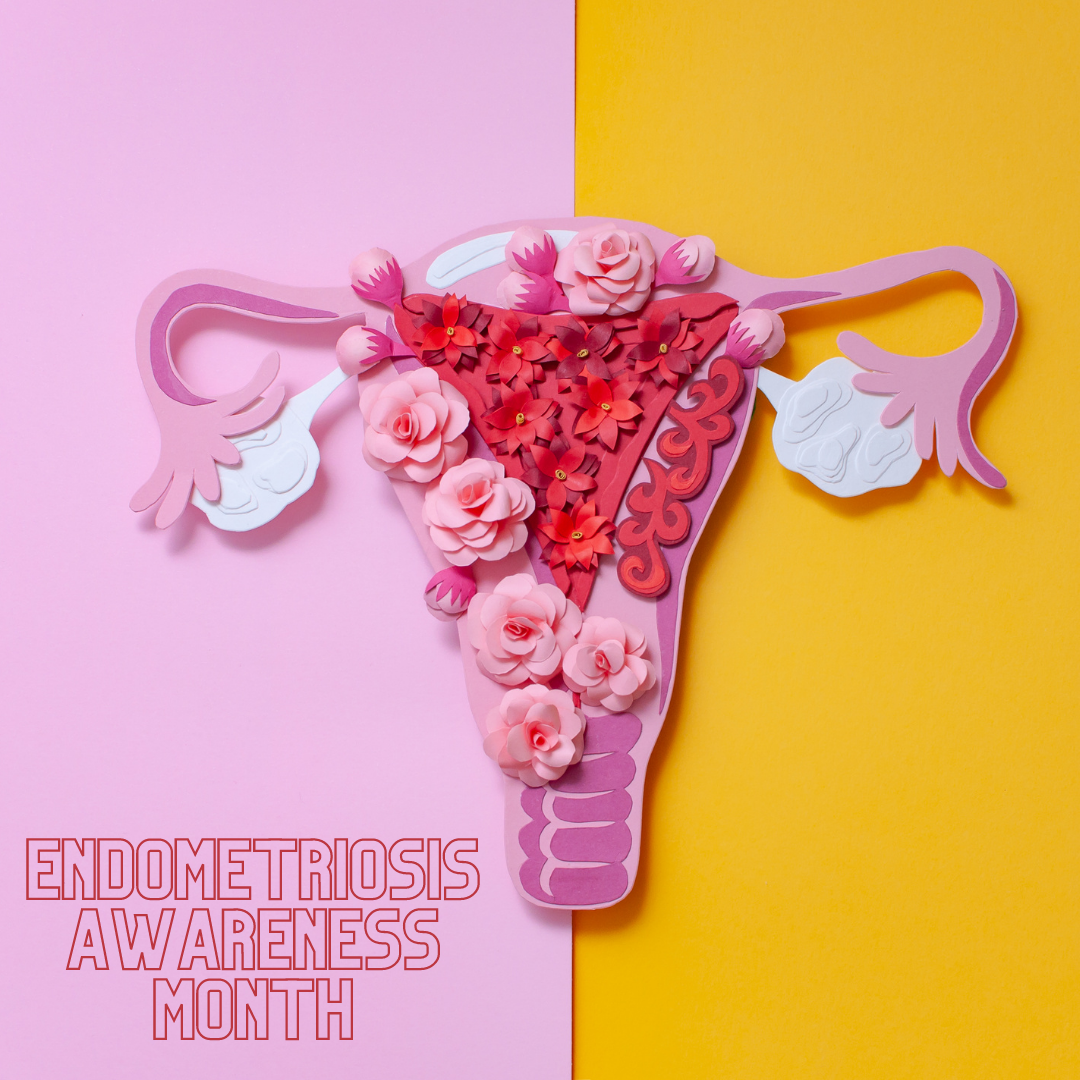The month of March in Australia, is Endometriosis Awareness Month and if you aren’t familiar with endometriosis, it is a chronic condition that affects around 1 in 10 Australian women.
It occurs when cells similar to those that line the uterus, grow in other parts of the body. Common symptoms of endometriosis include fatigue, pain – not just around menstruation but often if not constant, bowel and bladder irritation and heavy or irregular bleeding.
Despite the potential debilitating symptoms, it can take on average 7-10 years for women to receive a diagnosis.
While there is no cure for endometriosis and endometriosis cannot be prevented, diet may in some instances make a difference to symptoms and overall quality of life.
A treatment plan should focus on looking at ways to support hormone balance, gut health, liver detoxification, stress levels and addressing inflammation. Thankfully, diet and lifestyle can have a positive impact on each of these areas and are within our control to help and will be discussed below.
Diet
High vegetable consumption
Not surprisingly, high vegetable consumption has been associated with a reduced risk of endometriosis. Veggies are rich in fibre, vitamins, minerals and anti-inflammatory compounds, all of which would help to reduce inflammation associated with endometriosis.
Limit unhealthy fats and increase healthy fats
Foods high in trans fatty acids and saturated are known to increase levels of inflammatory markers in the body and therefore should be limited by anyone suffering endometriosis. Examples include, red meat, processed meat, processed foods, baked goods (crackers, biscuits), snack products (chips), deep fried food and pastries etc.
Conversely, healthy fats including monounsaturated and polyunsaturated fats are supportive against inflammation, support a healthy mood and help to keep blood sugar levels stable. Some examples include: avocado, macadamia nuts, extra virgin olive oil, hemp seeds, chia seeds and fatty fish.
Support Gut Health
Being irregular can cause excess hormones to recirculate in the body. Therefore, making sure we are eating enough fibre for daily elimination will assist in balancing hormones. The balance of good versus bad bacteria in the gut also plays a role in inflammation. Some foods to support gut health include:
- Probiotic rich foods: natural yoghurt, kefir, sauerkraut, kimchi, kombucha, tempeh.
- Prebiotic: oat bran, flaxseeds, leeks, onion, garlic and lentils.
- Fibre: wholegrains (brown rice, quinoa), vegetables, legumes, peas, oat bran, chia seeds, hemp seeds, flax/linseeds, pears, apples and kiwi fruit.
- Resistant Starch: cooked and cooled rice, potatoes, pasta and peas, cannellini beans.
Increase consumption of liver supportive foods
A well-functioning liver is critical for healthy hormone balance. Foods traditionally believed to support liver detoxification include:
- Beetroot – try freshly grated in salads or roasted and added to salads
- Rosemary – use as a marinade or add to stews and casseroles
- Brassica vegetables (broccoli, cauliflower, cabbage, brussels sprouts)
- Bitter greens – rocket, endive and watercress – add to salads, soups or smoothies
- Lemon – try as a salad dressing or squeezed into water
Specific nutrients
Vitamins C and E have been associated with less pain and dysmenorrhea. Both Vitamin C and E are antioxidants which play a role in decreasing oxidative stress markers. Food sources of each include:
- Vitamin C: berries of all kinds, broccoli, citrus fruits, parsley, pawpaw, capsicum, pineapple, potatoes, raw cabbage, sweet potato and tomatoes.
- Vitamin E: almonds, corn, egg yolk, sunflowers, wheat germ and hazelnuts.
If taking vitamin C in supplement form, it is best to consume small doses, for example 500mg a few times daily, rather than 1 large dose, because Vitamin C is water soluble and doesn’t stay in your system.
Vitamin E is fat soluble, so best taken alongside a source of fat such as EVOO, nuts/seeds or avocado.
Lifestyle
From a lifestyle perspective, stress reduction practices should be emphasised because stress has been shown to exacerbate endometriosis symptoms. To help cut back on stress:
- Engage in mindfulness practices;
- Learn to stay no without guilt.
- Develop a healthy sleep routine.
- Engage in daily exercise – low intensity if tired such as pilates.
- Go out in green space daily.
- Top up vitamin D outdoors in the sun via safe sun exposure.
- Develop a support network around you or join a endo support group.
